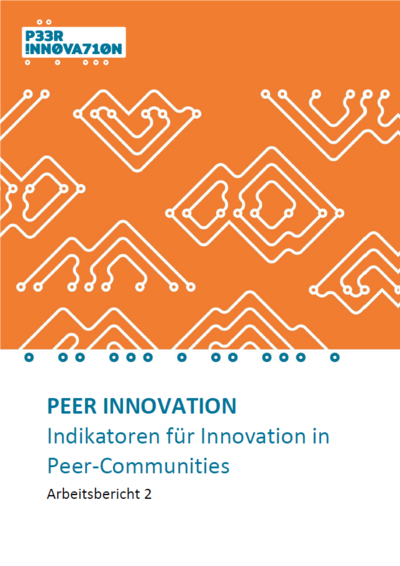Peer Innovation – Indicators for innovation in peer communities Working report 2
Individuals innovate in their spare time to satisfy their own needs, for the joy of making or to improve the world - a phenomenon that is surprising only because business is commonly understood to be the driving force of innovation. Although several studies point to the importance of private individuals as a source of innovation, it is still clearly underestimated by decision-makers. This misperception is also reflected in the failure of official innovation statistics to take into account activities in the household sector. So far, there is a lack of suitable indicators to adequately capture innovation activity outside the corporate sector. The research project examines peer innovation, the cooperation of private actors in online communities in the development of new solutions, as a prime example of this phenomenon. This second working report of the project provides a comprehensive overview of current approaches in research in the measurement of online communities that can be derived from data on the digital interactions of network members. From this, a framework for capturing peer innovation is developed.



